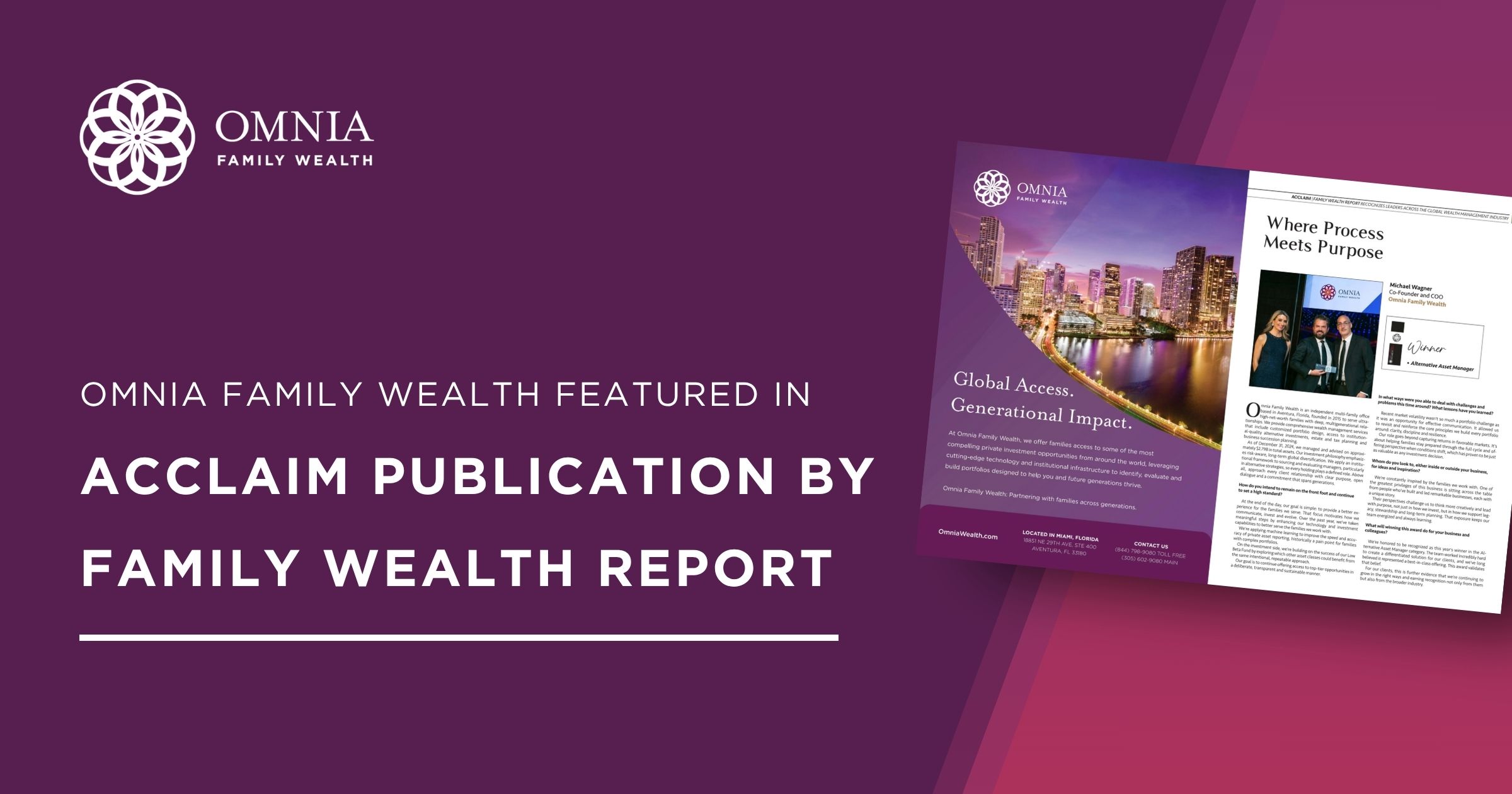
The Tough Conversation: How to Address Business Succession Planning While Navigating Sibling Differences
 It’s here. The $40 trillion wealth transfer brought on by the passing of the baton from the baby boomer generation to Gen X and millennial heirs. Many family business owners know it’s critical to plan for succession and include the family’s company as part of the greater estate plan. But how do you plan for succession when your heirs have different talents, wants, needs and career paths?
It’s here. The $40 trillion wealth transfer brought on by the passing of the baton from the baby boomer generation to Gen X and millennial heirs. Many family business owners know it’s critical to plan for succession and include the family’s company as part of the greater estate plan. But how do you plan for succession when your heirs have different talents, wants, needs and career paths?
It’s easy to postpone planning, and in fact many business owners do, as we discuss below. But with the new tax law providing approximately $22.4 million of estate exemption for a married couple, it is the perfect time to start, continue, or finalize your plans for the future of your family and your business.
The tools, talent, and techniques abound to help answer the question every business owner asks themselves: What happens to my family, my employees, and my business when I die?
Statistics
- While family businesses account for 64% of the US GDP and generate 62% of the country’s employment and 78% of all job new creation, nearly half of them have no succession plan (43%)
- While 70% would ultimately like to pass their family business to the next generation, only 30% will be successful in that transition
- More than 60% of senior generation business owners plan to transition their business within the next 10 years. Yet 65% do not have a clear retirement plan and just over half do not have a succession plan
For Example…
Let’s say you have two adult children, Eva and Joey. Since graduating from college, Eva has become very involved in your successful family business. She’s worked her way up over time and is now integral to the day-to-day operations and a key part of your succession plan. Joey’s passions have always been elsewhere, and you have encouraged him to pursue those passions. For the moment, let’s also assume that your estate plan prescribes that your ownership interest in the business is to be split equally between Eva and Joey upon your demise. But, when it comes to the family business, is it necessarily fair to treat every sibling as equals?
Consider the potentially negative consequences of Eva and Joey each inheriting equal shares in the family business. Joey’s lack of experience could lead to poor business decisions. Eva could become resentful that her work within the company wasn’t acknowledged. Employees could lose confidence in the new leadership. Any of these outcomes would likely lead to crippling challenges for the family’s company. Considering that the family business likely supports family and non-family employees alike, it is worthwhile to establish a concrete succession plan that considers all these factors and eases the transition for everyone.
Start With A Conversation
Developing a solid succession plan for your business and an equally solid estate plan for your family can feel daunting. By working with your legal and financial advisors, you can come up with creative solutions to treat your children fairly, even though it may not be “equal.” What’s most important though, is to communicate the intentions behind your planning with your kids. An inheritance does not equal love, and it is critical to discuss your plans with your heirs and make them a part of the process early on.
Very few family businesses are, in fact, 100% owned and operated by family members. It’s important to also consider non-family business partners and employees as part of any family business succession plan. In our experience, the best outcomes come from open lines of communication both within the family and within the business. Talk to your non-family business partners and employees about your plan for the leadership transition. Nobody should be kept in the dark about what your plans are. You can take steps to develop leaders within the next generation, but it takes lots of time and planning. You built your business by constantly looking to the horizon for the next opportunity, and your succession plan should be no different.
The Phases of a Family Business
Family businesses have their own lifecycles and trajectories. It’s really no different than the lifecycle for a “regular” business, but the are issues to address at each phase: establishment, investment, expansion and reinvention. Your next steps will heavily depend on which phase describes your company as it stands today.
The first stage, establishment, can be described as the inception of the business and can generally be described as the stage with the most vision, energy and enthusiasm. The entire family unit participates, but your children may still be too young to have an active role in ongoing management.
Over time, the risk-taking and optimistic vision of establishment give way to the conservatism of the investment phase. The founding generation now has firm ground beneath their feet and would like to protect the established business to lock-in progress made.
By the time the business has been established, grown a bit, and reached “adolescence,” the next generation enters the picture. Often their energy is directed toward the horizon. The original vision is still there, but strategic planning helps bridge the gap for the business to transition into the next phases. Structures are formalized, and a foundation is laid for future growth. This is when discussions for leadership transition should begin. A strong succession plan provides a stable foundation for the company through unstable periods of transition and growth.
Finally, the work of this next generation propels the business to a new era of expansion and reinvention. Most leadership transitions occur during this expansion and reinvention phase, with family heirs and non-family leadership taking the reins.
Next Steps
There are many planning structures and strategies that can help make your business succession and wealth planning decisions straightforward, fair and fulfilling to all stakeholders.
No matter what phase your business is in, it’s always a good idea to review your current estate planning documents. Do they mesh with the current family reality? Do they reflect your wishes? If not, reach out to your professional advisors to plan a revision. Even if your documents are current, it’s always a good idea to check in with your legal and financial professionals about your long-term plans. Since your operating company likely comprises a significant portion of your net worth, planning can be tricky. Documents are just the start, though. Make sure your family’s professional advisors (attorneys, tax advisors, wealth advisors, etc.) are fully informed of your plans.
Beyond your advisors, it’s critical that you involve your family once you’ve figured out your intentions. Gather input from your family and non-family partners and employees. Make sure the reasons for your decision are clearly communicated to both your family and non-family business partners and employees. If this is something you’re concerned about, there are steps you can take to avoid well-meaning and “equal” treatment throwing a wrench in the family dynamic.
Always keep in mind that this is an evolving and on-going situation. By opening the lines of communication now, you can answer the questions that might otherwise only pop up once you’re gone.
Omnia Family Wealth, LLC (“Omnia”), a multi-family office, is a registered investment advisor with the SEC. This commentary is provided for informational purposes only. No portion of any statement included herein is to be construed as a solicitation to the rendering of personalized investment advice through this communication. Consult with an accountant or attorney regarding individual tax or legal advice.
The views expressed herein are the view of Omnia and are subject to change based on market or other conditions. All information has been obtained from sources believed to be reliable, but its accuracy is not guaranteed.









